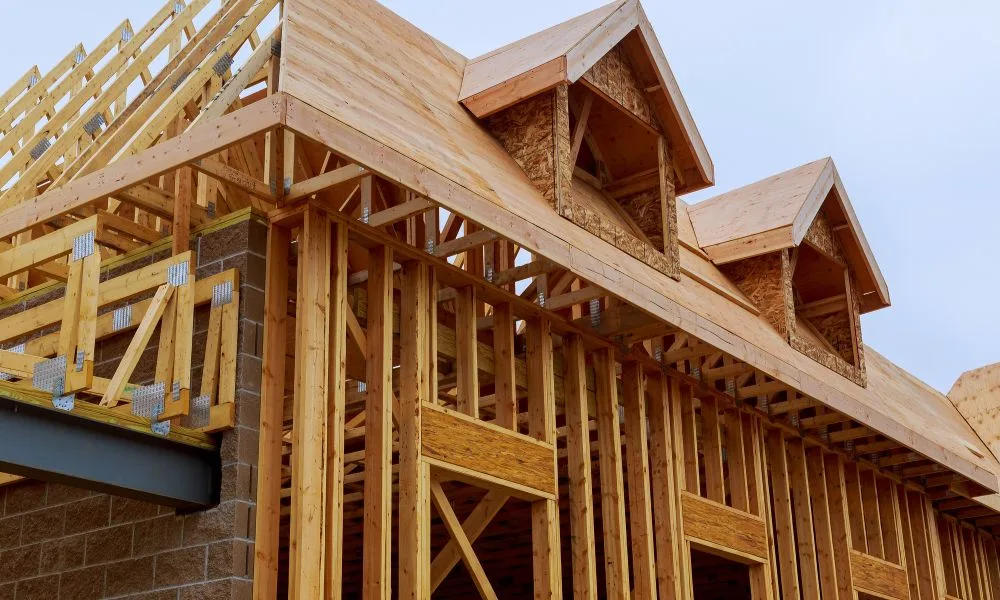Common Mistakes To Avoid for a Successful Home Addition

Are you considering adding an extra room to your home? A home addition can add value to your house and create more living space for you and your family. However, this project requires extensive planning and can be relatively costly. Because of this, you must avoid certain potholes to ensure that your home renovation goes smoothly. Let’s take a look at the top mistakes that you should avoid if you want to achieve a successful home addition.
Not Measuring the Room Size Accurately
Many homeowners make the mistake of underestimating or overestimating their house’s dimensions, which can lead to costly oversights and delays down the road. By measuring the room size accurately, you can determine the ideal layout for your new room.
This will help you decide where to place windows, doors, and furniture. Moreover, it will help you to visualize the space, which can make it easier to plan for the decor, paint color, and other design elements. Knowing the room size will also help you decide whether to add a bathroom or closet.
When you know the room size, you can plan accordingly before you start the project. This means you can avoid setbacks and reduce the risk of errors. For example, if you plan on adding a room to your existing home, you may need to connect new plumbing, electrical, and HVAC systems in the new room. Accurate measurements of your room size will also help you anticipate the costs of your project, so it’s an essential first step.
Choosing a Design That Doesn’t Fit With the Rest of Your Home
Whether you’re creating a new bedroom, home office, or entertainment room, you’re envisioning all the amazing ways you’ll use the new space. As you make plans, though, don’t neglect one crucial aspect—your home’s overall design.
When you add a new room to your home, ensure that it doesn’t look out of place or clash with the rest of your house’s design. A new addition should complement the house’s existing style and enhance its overall appeal. For instance, if your home has a vintage feel, then a new room that’s overly modern may not match it well. Instead, consider using classic design elements when creating your new room.
When you have a cohesive design throughout your home, it becomes easier to choose furniture and decor. You won’t have to worry about color clashes and design inconsistencies—everything will feel like it belongs, creating a seamless and comfortable atmosphere.
Skimping on Quality Materials
When it comes to construction, durability is a crucial factor. High-quality materials, whether it’s structural framing, flooring, or roofing materials, last longer. They can withstand extreme weather conditions, wear and tear, and overall damage that might occur over time. High-quality materials ensure that you don’t have to face hefty maintenance costs over time, saving you money in the long run.
Cheap materials usually tend to look cheap as well. By investing in high-quality materials, you’re ensuring durability and adding value to your home. High-quality materials can make your home look more polished, luxurious, and visually appealing. For example, high-quality flooring materials add a touch of elegance that can make your home look more sophisticated.
Hiring an Unqualified Contractor
One of the biggest advantages of hiring a quality contractor is the level of artistry they provide. A reputable contractor will have a team of skilled professionals who know how to do the job right the first time. They’ll use high-quality materials and the latest techniques to ensure your new room is sturdy. You can rest assured knowing that your investment is in good hands.
While it may seem counterintuitive, hiring a quality contractor can save you money in the long run. A reputable contractor will be upfront about the project’s costs from the outset, providing you with a comprehensive quote that includes all expenses. They’ll work within your budget and advise you on cost-saving measures without compromising quality. Additionally, a quality contractor will ensure that the project is completed on time and within budget. You won’t have to worry about unexpected expenses or surprises along the way.
Neglecting To Factor in Necessary Permits or Local Zoning Laws
Not having the necessary permits for your home’s alteration can lead to legal complications, such as fines and even demolition. If you construct any addition to your home without obtaining the necessary building permits, the authorities may impose a fine and require demolition of the structure. You’ll end up in an endless cycle of paying hefty fines, getting permits, and rebuilding your home. You don’t want to deal with the bureaucracy of correcting the mistakes that you could have avoided by merely following the correct protocols.
Aside from the legal implications of not following zoning laws, you might also experience issues with your insurance. Considering your insurance might sound odd, but insurance agencies will require documentation and permits before accepting any renovation project claims. However, not having the correct permits or following your local zoning laws may imply that you have breached insurance terms, leaving you uncovered in the event of a claim.
A quality contractor will have experience in navigating the local regulations and will handle the necessary paperwork on your behalf. They’ll have all the proper permits and conduct inspections to ensure that your new room is up to code. This ensures your safety and protects you from any legal issues that may arise from improper construction.
Skimping on Materials or Hiring an Unqualified Contractor
When adding a new room to your home, you must consider its functionality and versatility. Your new space may serve one purpose now, but what about in the future? Will your entertainment room one day become the ultimate man cave? Will your guest room potentially become a nursery? By leaving room for potential expansions and upgrades, you can ensure that your room remains functional for years to come.
Staying flexible is a vital factor when you add a new room to your home. For example, if you install a new electric line for lights or computers, you can quickly reroute those wires to other parts of your home, giving you added flexibility. The same goes for your plumbing—leaving spare pipes or access panels can make upgrading to a larger bathtub or shower easier in the future.
Your home is a reflection of your personality and a space where you should feel comfortable. By avoiding these common mistakes, you’ll be well on your way to having a successful home addition.
If you’re looking for a home renovation contractor you can rely on, contact Distinctive Design Remodeling today. We specialize in home addition design and installation and will use our years of expertise to craft your ideal room and bring your vision to life.

